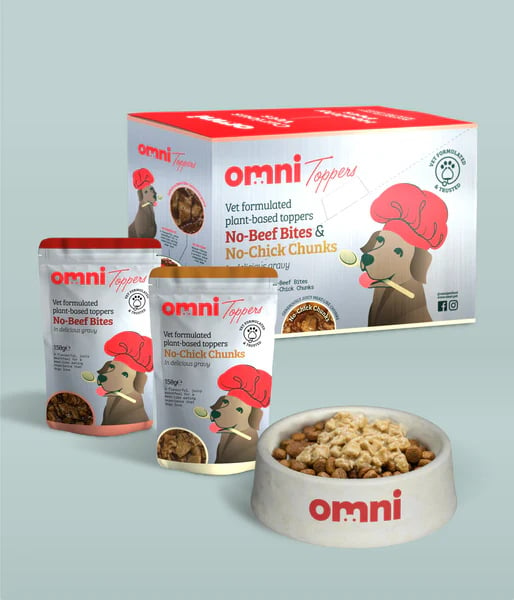The British Veterinary Association (BVA) just ended its longstanding opposition to plant-based diets for dogs, providing they are “nutritionally sound.”
Read more: Pets Choice Acquires Vegan Dog Food Brand HOWND
The BVA now says it is “possible” to feed dogs a plant-based diet. The organization also warns that guardians should be aware of ensuring these diets meet nutritional needs. (A number of studies have found that well-planned plant-based diets can be safe and optimal for dogs). The BVA has also acknowledged a growing body of evidence demonstrating the major environmental benefits of feeding dogs a plant-based diet.
While the BVA’s lack of previous support for meat-free animal foods is well-publicized, it ceased making public statements on the topic last year and instead established a working group to review its position on companion animal nutrition, including plant-based diets for dogs.
Earlier this month, the BVA published an article on the topic and updated its official policies to reflect its new position. However, the association’s updated guidelines do not actively recommend any single “best” diet for individual pets. Instead, it acknowledges that vets should support people to meet animals’ nutritional needs within their lifestyle choices.
“It is commendable that the BVA has finally ended its unscientific opposition to (nutritionally-sound) vegan dog diets,” said Andrew Knight, veterinary Professor of Animal Welfare, in a statement. “It is now up to international veterinary associations to follow suit.”
Read more: Cultivated Meat For Companion Animals Approved In The UK
Veterinary associations have a ‘responsibility’ towards evidence-based policy

Twenty-nine percent of companion animal vets report that they have clients who feed their pets meat-free diets. Some plant-based pet food companies, such as Omni, have reported a huge increase in sales as consumer awareness of plant-based options for animals grows.
The BVA itself is notably partnered with Mars Petcare, which has the second-highest revenue of all pet food companies in the US at around USD $20 billion per year.
The corporation’s brands include Whiskas (compared by one vet to feeding your cat a daily McDonald’s), Royal Canin (currently facing a lawsuit over animal deaths), and Pedigree (315 bags of which are currently being recalled in the US due to contamination with metal shards).
Almost all of Mars Petcare’s various brands make products using meat.
“The Mars-BVA partnership represents a significant conflict of interest,” explained Knight. “Veterinary associations have a responsibility to ensure their positions are evidence-based, up-to-date, and not influenced by conflicts of interest.”
A group of Welsh vets represented by Unite’s British Veterinary Union are currently striking over the “profiteering” of corporate-run practices. Just six large corporations own about 60 percent of veterinary practices in the UK, up from 10 percent a decade ago.
Earlier this year, the Competition and Markets Authority (CMA) announced a sector-wide review of the UK’s GBP £2 billion veterinary market due to concerns about fluctuating prescription prices and a lack of information about available treatments.
Read more: Can Dogs Be Plant-Based? Here’s What The Science Says






